 The Foundation for the Philosophy of Creativity and the AIPCT are pleased to announce our third annual Spring Creativity Conference. Due to the pandemic, the conference will be held on-line. This year’s theme is Creativity and Culture, organized by AIPCT Fellow Eli Kramer. This is also part of the on-going collaboration between Southern Illinois University Carbondale and the Faculty of Philosophy, University of Warsaw, and the conference is co-sponsored by Eidos: A Journal of the Philosophy of Culture, and by the University of Wrocław. This year’s conference has been built upon contributions to the forthcoming volume, tentatively entitled Philosophy of Culture as Theory, Method, and Way of Life, eds. Eli Kramer, Przemysław Bursztyka, Marcin Rychter, and Randall Auxier.
The Foundation for the Philosophy of Creativity and the AIPCT are pleased to announce our third annual Spring Creativity Conference. Due to the pandemic, the conference will be held on-line. This year’s theme is Creativity and Culture, organized by AIPCT Fellow Eli Kramer. This is also part of the on-going collaboration between Southern Illinois University Carbondale and the Faculty of Philosophy, University of Warsaw, and the conference is co-sponsored by Eidos: A Journal of the Philosophy of Culture, and by the University of Wrocław. This year’s conference has been built upon contributions to the forthcoming volume, tentatively entitled Philosophy of Culture as Theory, Method, and Way of Life, eds. Eli Kramer, Przemysław Bursztyka, Marcin Rychter, and Randall Auxier.
To attend, request a Zoom link at: personalist61@gmail.com
Program
(All times Central Daylight Time, US)
Friday, April 16
12:30 PM Zofia Rosińska, University of Warsaw: “Dialectics of Creativity According to Władysław Stróżewski.” The lecture is here.
1:30 PM Przemysław Bursztyka, University of Warsaw: “Outline of an Apophatic Philosophy of Culture.” The lecture is here.
3:00 PM Rudolf Makkreel, Emory University: “How the Arts Reorient Experience and Recontextualize the World.” The lecture is here.
Saturday, April 17
12:00 PM Eli Kramer, University of Wrocław: “The Creative Virtues of Philosophy of Culture.” The lecture is here.
1:30 PM Laura Mueller, West Texas A&M University: “Modern Socratic Dialogue and Resilient Democracy: Creating the Clearing for an American Bildung.” The lecture is here.
3:00 PM Robert C. Neville, Boston University: “Culture and Philosophy.” The lecture is here.
The Presentations
Zofia Rosińska, University of Warsaw: “Dialectics of Creativity According to Władysław Stróżewski”
The aim of my lecture is to present Władysław Stróżewski’s analyzes on the artistic process of creation. I would like my speech to be an introduction to the discussion on important spheres that, in his opinion, occur in creative processes. These are the relationship between the method and axiology, and values as the basis of creative motivation. Stróżewski’s philosophical approach, on which he bases all his deliberations, seems to be an innovative, and therefore quite risky connection of dialectics with phenomenology and hermeneutics. The philosophical insight of Stróżewski’s considerations and basing them on empirical material – which are the opinions and statements of outstanding artists – allows him to obtain a synthesis of these often distant approaches. However, the question arises whether Stróżewski’s analyzes have universal value and particularly whether they can be applied to trends in contemporary art.
Przemysław Bursztyka, “Outline of an Apophatic Philosophy of Culture”
The aim of my talk is to provide an outline of an original (if not wholly novel) approach to how to philosophize on and through culture. My two basic assumptions are: First, in case of philosophy of culture there is an intransgressible entanglement of the “object” and discipline. Philosophy originates from culture (as one of its emanations) and always necessarily refers to it (whether consciously or not); it is culture’s ultimate possibility of self-questioning and self-critique. Second, culture – against all essentialism, against all objectivistic tendencies – is non-objectifiable. It is an all-encompassing, a priori horizon of all possible meanings and modes of experience – expressed and articulated in more or less comprehensive systems of structuration and symbolic formation, but never reducible either to any of them, or to any potential sum of them. An apophatic philosophy of culture presents culture as such originary horizon of all human creative efforts of meaning-giving. It is fundamentally pluralistic, polyphonic, dynamic, open, but most importantly, tensive. If one could speak of any essence of culture it refers to a genetically and ontologically primordial element of productive tensions from which all other fundamental categories derive as their specifications. None of these specifications is either final or ultimate. None of them is more adequate or closer to any pre-established Ideal – the latter being nothing but one of such fundamental categories derived from this originary tensive element. I argue that culture is nothing but the creative, open-ended process of in-defining itself.
Rudolf Makkreel, “How the Arts Reorient Experience and Recontextualize the World”
In this lecture I explore the question of “orientation” as it relates to art, using a hermeneutic and historical account of the role of art in culture from the time of Kant to the twentieth century with special attention to the contributions of Langer, Dilthey and Danto. Orientation is hermeneutically important in highlighting the way we are situated in the world and realizing that our perspective on things may not accord with that of others. Abstractly, we have this earthly globe as a general context. But we mostly orient ourselves by more specific points of reference that may limit our perspective. The arts can help us to imagine how things look from another perspective. For a shared meaning to be possible, artists can create an imaginary landscape or appeal to already existing social and cultural frames of reference. This sets the stage for two themes: aesthetic reorientation for gaining consensus and artistic recontextualization for gaining a more nuanced understanding of human life.
Eli O. Kramer, “The Creative Virtues of Philosophy of Culture”
In this presentation, using Ernst Cassirer as a sage model, we explore three creative virtue symbols that I think can be drawn from his exemplary philosophy of culture practice: polyhistoria, humanitas, and phusiophilia. Further, I will propose that we take up these virtue symbols for philosophy of culture (broadly construed). In the first sections of the presentation we explore how we can draw, with due caution, virtue symbols from the hagiography of memorials. In the next sections, we contemplate the aforementioned creative virtues. In the final section, we reflect on what these virtue symbols mean for finding equanimity between the different aspects of philosophy of culture, and how they might educate us on how to creatively respond to our own situation today.
Laura J. Mueller, “Modern Socratic Dialogue and Resilient Democracy: Creating the Clearing for an American Bildung”
This lecture puts forth Modern Socratic Dialogue as a pedagogical tool for cultivating an American Bildung, beginning with Michael Hogue’s work on “resilient democracy,” an associational ethos that is vulnerable and based on our lived uncertainty. To further establish this American Bildung, I investigate what it means to be American. Drawing from the works of Michael Walzer and Gloria Anzaldúa, I establish that “American” means unfinished, pluralistic, and embraces ambiguity. The question of how to cultivate this pluralistic, ambiguous, and vulnerable Bildung is framed by the freedom and social bonds of Wilhelm von Humboldt’s theory of Bildung. For an American Bildung to flourish, freedom and social bonds can be presented and practiced in the form of Modern Socratic Dialogue – “truths” are created by the community of interlocutors, and problems and solutions are based on the experiences of the participants.
Robert C. Neville, “Culture and Philosophy”
In this paper I raise and provide some answers to the question “what do philosophy and culture have to do with one another?” Such a question is very broad, but it has to be addressed before a clear answer could be given to the question “what should a philosophy of culture do, for whom, and how?” These latter concerns address any viable path forward for the philosophy of culture in the twenty-first century. I discuss the relations of East and West, of individuality and community, and the question of how culture forms our values as we create our culture.
The Presenters
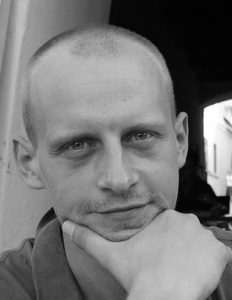 Przemysław Bursztyka is Assistant Professor at the Institute of Philosophy, University of Warsaw, and chair of the Department of Philosophy of Culture. He is a past resident fellow of the AIPCT. His interests include philosophy of culture (including cultural studies) philosophical psychology, philosophy of human nature (especially apophatic anthropology) and philosophy of subjectivity, phenomenology, psychoanalysis, existentialism (Kierkegaard, Nietzsche), hermeneutics (Gadamer, Ricoeur) and aesthetics (especially phenomenological). Currently he is working on the aesthetic and ethical (broadly understood) aspects of the work of imagination. Co-editor and co-author of three books: Schulz. Między mitem a filozofią (Gdańsk 2014), Freud i nowoczesność (Kraków 2007 and 2008), Miłość i samotność. Wokół myśli Sørena Kierkegaarda (Warszawa 2007). He is the author of numerous articles and co-founder and editor-in-chief of the philosophical journal Eidos. A Journal for Philosophy of Culture.
Przemysław Bursztyka is Assistant Professor at the Institute of Philosophy, University of Warsaw, and chair of the Department of Philosophy of Culture. He is a past resident fellow of the AIPCT. His interests include philosophy of culture (including cultural studies) philosophical psychology, philosophy of human nature (especially apophatic anthropology) and philosophy of subjectivity, phenomenology, psychoanalysis, existentialism (Kierkegaard, Nietzsche), hermeneutics (Gadamer, Ricoeur) and aesthetics (especially phenomenological). Currently he is working on the aesthetic and ethical (broadly understood) aspects of the work of imagination. Co-editor and co-author of three books: Schulz. Między mitem a filozofią (Gdańsk 2014), Freud i nowoczesność (Kraków 2007 and 2008), Miłość i samotność. Wokół myśli Sørena Kierkegaarda (Warszawa 2007). He is the author of numerous articles and co-founder and editor-in-chief of the philosophical journal Eidos. A Journal for Philosophy of Culture.
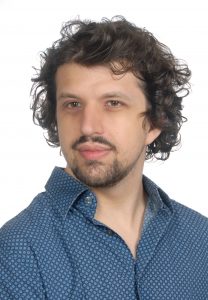
Eli Kramer is an assistant professor at the Department of Ethics of the Institute of Philosophy, University Wrocław. He is principal organizer of this program and a Fellow of AIPCT. His work traverses philosophy as a way of life (PWL) and metaphilosophy, philosophy of culture, American and European idealism, classical American Philosophy, and process philosophy. He co-edits a new book series with Brill, “Philosophy as a Way of Life: Text and Studies,” which organizes new translations, as well as putting out new studies. His first single authored monograph is on the nature and role of the associated philosophical life (as distinct from philosophy as a discipline), entitled The Principles of Philosophical Community: An Intercultural Constellation to Guide the Associated Philosophical Life (Brill, Forthcoming). His work has appeared in journals such as Philosophy and Theory in Higher Education, Eidos: A Journal for Philosophy of Culture, Syndicate Philosophy, the Philosophy of Education Yearbook, Dewey Studies, and The Journal of School and Society. He has also co-edited and contributed to collections such as Rorty and Beyond (Lexington Books, 201) and Contemporary Philosophical Proposals for the University: Toward a Philosophy of Higher Education (Palgrave Macmillan, 2018).
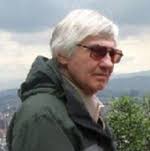 Rudolf Makkreel is Charles Howard Candler Professor Emeritus of Philosophy at Emory University. He is author of Dilthey, Philosopher of the Human Studies (1975, Pulitzer Prize and National Book Award nominee), Imagination and Interpretation in Kant (1990), and Orientation and Judgment in Hermeneutics (2015). He co-edited and co-translated Selected Works of Wilhelm Dilthey (5 volumes, 1985-2010), and was editor of the Journal of the History of Philosophy from 1983-98. Makkreel’s work is concentrated on hermeneutics and aesthetics by developing ideas from the German philosophers Wilhelm Dilthey and Immanuel Kant. He has focused on the roles of the imagination, judgment, and interpretation within Kant’s critical system. The implications of Kant’s conception of reflective judgment for hermeneutics and for the theory of the human sciences are also central to Makkreel’s writings. A new book Kant’s Worldview: How Judgment Shapes Human Comprehension will appear with Northwestern University Press later this year.
Rudolf Makkreel is Charles Howard Candler Professor Emeritus of Philosophy at Emory University. He is author of Dilthey, Philosopher of the Human Studies (1975, Pulitzer Prize and National Book Award nominee), Imagination and Interpretation in Kant (1990), and Orientation and Judgment in Hermeneutics (2015). He co-edited and co-translated Selected Works of Wilhelm Dilthey (5 volumes, 1985-2010), and was editor of the Journal of the History of Philosophy from 1983-98. Makkreel’s work is concentrated on hermeneutics and aesthetics by developing ideas from the German philosophers Wilhelm Dilthey and Immanuel Kant. He has focused on the roles of the imagination, judgment, and interpretation within Kant’s critical system. The implications of Kant’s conception of reflective judgment for hermeneutics and for the theory of the human sciences are also central to Makkreel’s writings. A new book Kant’s Worldview: How Judgment Shapes Human Comprehension will appear with Northwestern University Press later this year.
 Laura J. Mueller is Assistant Professor of Philosophy at West Texas A&M University. She taught previously at Gustavus Adolphus College and Luther College. She teaches courses in ethics, social and political philosophy, history of philosophy, American Philosophy, feminism, and philosophy of culture. Her past research focused primarily on Kant’s ideas about sensus communis, emphasizing the role of pre-cognitive aesthetics in ethics and epistemology. Recent projects include personalism and animals, and Kant and mental illness. She is also interested in matriarchal theory and philosophy of symbolism. Laura serves on the Editorial Board of Eidos: A Journal of the Philosophy of Culture and is lead editor of the forthcoming issue of dedicated to the study of physical culture.
Laura J. Mueller is Assistant Professor of Philosophy at West Texas A&M University. She taught previously at Gustavus Adolphus College and Luther College. She teaches courses in ethics, social and political philosophy, history of philosophy, American Philosophy, feminism, and philosophy of culture. Her past research focused primarily on Kant’s ideas about sensus communis, emphasizing the role of pre-cognitive aesthetics in ethics and epistemology. Recent projects include personalism and animals, and Kant and mental illness. She is also interested in matriarchal theory and philosophy of symbolism. Laura serves on the Editorial Board of Eidos: A Journal of the Philosophy of Culture and is lead editor of the forthcoming issue of dedicated to the study of physical culture.
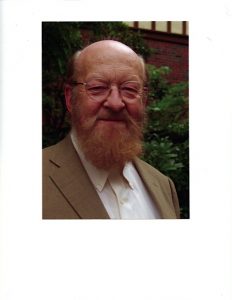 Robert Cummings Neville is professor emeritus of philosophy, religion, and theology at Boston University where he is also dean emeritus of the School of Theology and of Marsh Chapel. He is past president of the Charles S. Peirce Society, the American Academy of Religion, the Metaphysical Society of America, the International Society for Chinese Philosophy, and the Institute for American Religious and Philosophical Thought. He is the author of over 300 papers and nearly 30 books, notably the Axiology of Thinking trilogy Reconstruction of Thinking (1981), Recovery of the Measure (1989), and Normative Cultures (1995). His recent Philosophical Theology trilogy consists of Ultimates (2013), Existence (2014), and Religion (2015). His most recent book is Defining Religion: Essays in Philosophical Theology (2018). An ordained United Methodist Elder, he has published four books of sermons. His website is robertcummingsneville.com.
Robert Cummings Neville is professor emeritus of philosophy, religion, and theology at Boston University where he is also dean emeritus of the School of Theology and of Marsh Chapel. He is past president of the Charles S. Peirce Society, the American Academy of Religion, the Metaphysical Society of America, the International Society for Chinese Philosophy, and the Institute for American Religious and Philosophical Thought. He is the author of over 300 papers and nearly 30 books, notably the Axiology of Thinking trilogy Reconstruction of Thinking (1981), Recovery of the Measure (1989), and Normative Cultures (1995). His recent Philosophical Theology trilogy consists of Ultimates (2013), Existence (2014), and Religion (2015). His most recent book is Defining Religion: Essays in Philosophical Theology (2018). An ordained United Methodist Elder, he has published four books of sermons. His website is robertcummingsneville.com.
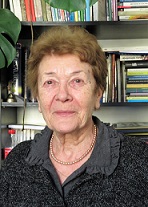 Zofia Rosińska, is Professor Emerita, Institute of Philosophy at the University of Warsaw, where for over 25 years she held the position of the chair of the Department of Philosophy of Culture. She engages with the problems that arise at the meeting point between Psychology and Philosophy. She introduced psychoanalysis to the Polish philosophical scene as a method of reflecting on culture and the human person. Recently she works on the possibility of dialogue between philosophy and psychiatry. She is the author of many books including: Freud (Warszawa, 1993), Jung (Warszawa,1982), Psychoanalityczne myślenie o sztuce (Psychoanalytic Thinking About Art, Warszawa, 1985), Ruch myśli (Movement of Thought, Warszawa 2012). She is also editor or co-editor of many other books including: Psyhoterapia i kutura (Psychotherapy and Culture, Warszawa 1997), Pamięć w filozofii XX wieku (Memory in the XXth century Philosophy, Warszawa 2001) and Co to jest filozofia kultury? (What is Philosophy of Culture?, Warszawa 2006). She is also the chair of the Advisory Board of Eidos. A Journal for Philosophy of Culture.
Zofia Rosińska, is Professor Emerita, Institute of Philosophy at the University of Warsaw, where for over 25 years she held the position of the chair of the Department of Philosophy of Culture. She engages with the problems that arise at the meeting point between Psychology and Philosophy. She introduced psychoanalysis to the Polish philosophical scene as a method of reflecting on culture and the human person. Recently she works on the possibility of dialogue between philosophy and psychiatry. She is the author of many books including: Freud (Warszawa, 1993), Jung (Warszawa,1982), Psychoanalityczne myślenie o sztuce (Psychoanalytic Thinking About Art, Warszawa, 1985), Ruch myśli (Movement of Thought, Warszawa 2012). She is also editor or co-editor of many other books including: Psyhoterapia i kutura (Psychotherapy and Culture, Warszawa 1997), Pamięć w filozofii XX wieku (Memory in the XXth century Philosophy, Warszawa 2001) and Co to jest filozofia kultury? (What is Philosophy of Culture?, Warszawa 2006). She is also the chair of the Advisory Board of Eidos. A Journal for Philosophy of Culture.



